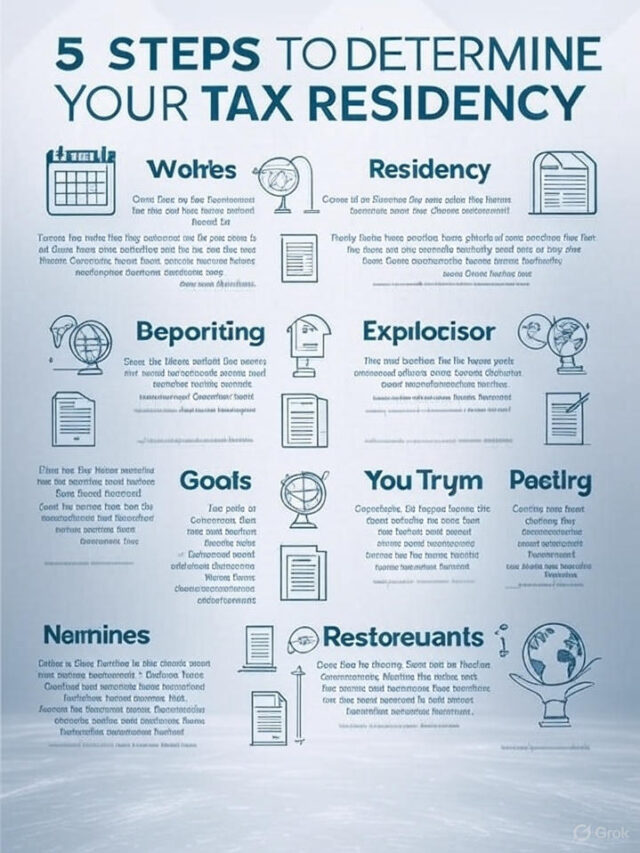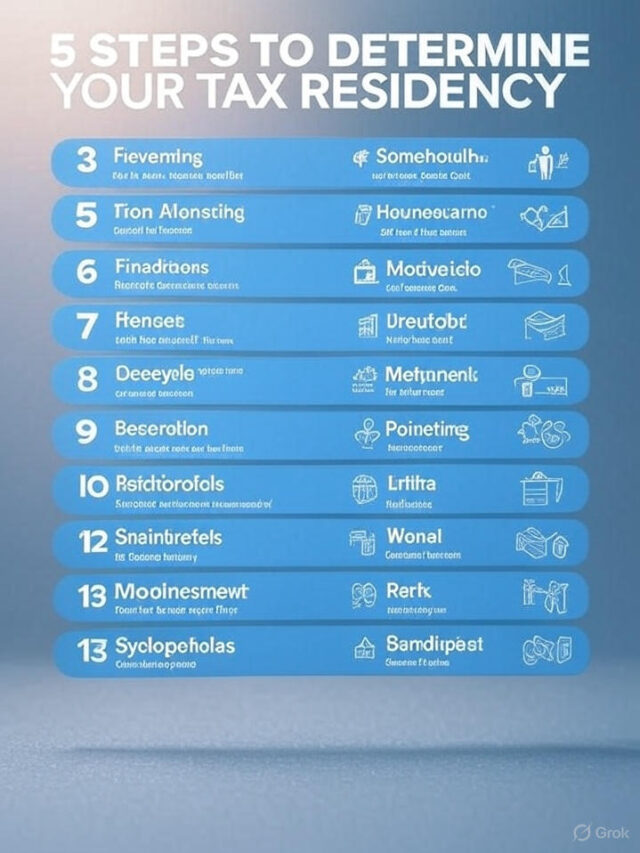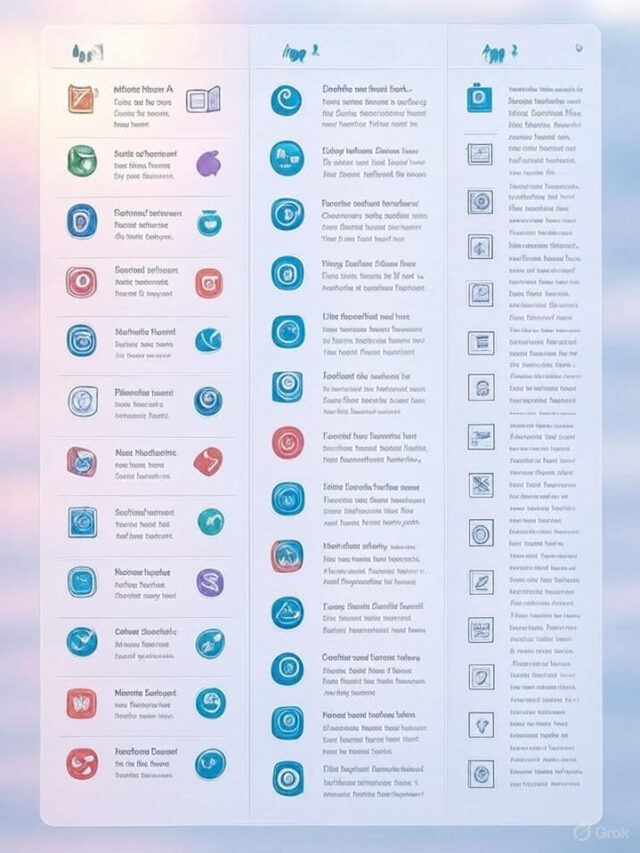
Sometimes, life can be feeled like a tornado? One moment you’re juggling work, relationships, and daily stressors, and the next, you’re overwhelmed, unsure how to keep it all together. If you’ve ever felt stuck or unable to handle challenges, you might be dealing with coping skill deficits—gaps in your ability to manage emotions and solve problems effectively. But here’s the good news: you can build mental health coping skills to navigate life’s ups and downs with confidence.
In this article, we’ll explore practical, science-backed strategies to strengthen your emotional resilience and problem-solving abilities. Whether you’re facing stress, anxiety, or just want to feel more in control, these tips will help you thrive. Let’s dive in!
Table of Contents
What Are Coping Skill Deficits?
Why Mental Health Coping Skills Matter
7 Emotional Coping Strategies to Build Resilience
How to Improve Coping Skills for Everyday Challenges
Overcoming Emotional Challenges with Problem-Solving
Practical Tips to Maintain Your Coping Skills
FAQs About Mental Health Coping Skills

What Are Coping Skill Deficits?
Imagine trying to fix a leaky pipe with no tools. That’s what it’s like when you face life’s challenges without strong coping skills. Coping skill deficits happen when you lack the strategies to manage stress, emotions, or problems effectively. Maybe you freeze under pressure, lash out in frustration, or avoid issues altogether. These pressure cooker like situation will lead to anxiety and depression in the long run.
Coping skills are like tools in a toolbox. Many people are naturally talented on few skill but, the good news is that being a skill all these can be learned over the period of time later in your life. These skills are fall into two main categories:
Emotional coping skills: These help you process and regulate feelings, like calming anxiety or managing anger.
Problem-solving skills: These focus on tackling challenges head-on, like finding solutions or making decisions.
Without these skills, small stressors can feel overwhelming. But by building mental health coping skills, you can face life’s challenges with confidence. Let’s find out more about these crucial skills.
Why Mental Health Coping Skills Matter
Ever wonder why some people bounce back from setbacks while others struggle? It often comes down to mental health coping skills. These skills are the foundation of emotional resilience—the ability to adapt and thrive despite stress. Here’s why they’re a game-changer:
Reduce Stress and Anxiety: Strong coping skills help you manage intense emotions, preventing them from spiraling out of control. For example, deep breathing can calm your mind during a stressful moment.
Improve Relationships: When you handle emotions well, you’re less likely to snap at loved ones or miscommunicate. This strengthens your connections.
Boost Problem-Solving: Coping skills empower you to tackle challenges logically, whether it’s a work deadline or a personal conflict.
Enhance Mental Health: Studies show that effective coping strategies lower the risk of depression and anxiety, promoting long-term well-being.
In short, mental health coping skills are your secret weapon for navigating life’s chaos. But how do you build them? Let’s look at some powerful emotional coping strategies to get started.
7 Emotional Coping Strategies to Build Resilience
If you’re ready to take control of your emotions, these emotional coping strategies will help you stay grounded and resilient. Each one is practical, easy to try, and backed by psychology. Let’s break them down:
1. Practice Mindfulness
Mindfulness is about staying present without judgment. When you’re overwhelmed, take five minutes to focus on your breath or notice your surroundings. Apps like Headspace or simple guided meditations can help. Mindfulness can be beneficial in reducing stress, anxiety and drepression and keep the brain calm, cool and poise.
2. Journal Your Thoughts
Writing down your feelings can feel like unloading a heavy backpack. Try free-writing for 10 minutes each day, jotting down whatever comes to mind. This helps you process emotions and spot patterns in your reactions, making it easier to address coping skill deficits.
3. Use Positive Self-Talk
Your inner voice matters. Replace thoughts like “I can’t handle this” with “I’m doing my best, and that’s enough.” Positive self-talk boosts confidence and reduces emotional overwhelm, helping you stay calm under pressure.
4. Try Grounding Techniques
Ground Technique is something which keep you in present moment. When you feel anxiety, it because of two reason whether regret for past and worry for future. But, when you are in present moment these time anxiety goes away automatically. You can try a marvolous technique of 5-4-3-2-1. It implies 5 things to watch, 4 things to hold, 3 things to hear, 2 things to smell and 1 things to taste to break the depression cycle of nervous system.
5. Build a Support Network
You don’t have to go it alone. Reach out to friends, family, or a therapist when you’re struggling. Sharing your true feelings with your near and dear one can help with emotional support and help.
6. Engage in Physical Activity
Physical Exercise has positive effect on body and mind together. A 30 minutes walk or physical exerciseso or yoga or dance not only provide fresh air for body but also releases endorphins to boost the mind health also. For this you need to find out an physical activity which can automatically motivate for such activities and ensure a long race horse.
7. Set Healthy Boundaries
Sometimes a stong “No” will protect from unnatural habits like smoking, drinking etc which has ultimate affect on the mental health. If you’re stretched thin, politely decline extra tasks or set limits with people who drain your energy. Boundaries give you space to focus on your well-being.
These emotional coping strategies are like building blocks for resilience. But what about when life throws practical problems your way? That’s where learning how to improve coping skills comes in.
How to Improve Coping Skills for Everyday Challenges
Building coping skills isn’t just about managing emotions—it’s also about tackling life’s practical challenges. Whether it’s a tight deadline or a disagreement with a friend, strong problem-solving skills can make all the difference. Here’s how to improve coping skills to handle everyday obstacles with ease:
1. Break Problems into Smaller Steps
You cannot face a Big challenges at a time until you are not bigger than the challenges. So the smart way to takle these is break them in small parts so that you are remaining ahead and superior over your challenges. For example, if you’re overwhelmed by a work project, list the tasks involved and tackle them one at a time. This approach reduces stress and builds momentum.
2. Practice Decision-Making
Indecision can worsen coping skill deficits. When faced with a choice, weigh the pros and cons, then trust your gut. Start with small decisions, like choosing a meal, to build confidence for bigger ones.
3. Learn from Past Experiences
Reflect on how you’ve handled challenges before. What worked? What didn’t? For instance, if yelling during an argument made things worse, try active listening next time. Learning from the past sharpens your coping skills.
4. Seek Solutions, Not Blame
When problems arise, focus on solutions instead of dwelling on what went wrong. When you miss a deadline, First execure a self punish formula. It can be anything a 100 sit up or tearing of 100 boxes and ask yourself, “How can I will be a man of words and punctual?” instead of beating yourself up. This mindset shift fosters proactive coping.
5. Use Visualization
Picture yourself successfully handling a challenge. If you’re nervous about a presentation, visualize speaking confidently and engaging your audience. This can boost the overall confidence and personality of a man.
By practicing these strategies, you’ll strengthen your ability to navigate life’s hurdles. But what about those moments when emotions and problems collide? Let’s explorin thsi with a problem solving skill.
Overcoming Emotional Challenges with Problem-Solving
Sometimes, emotions and problems are so tangled that it’s hard to know where to start. Maybe you’re stressed about a conflict or anxious about an uncertain future. Overcoming emotional challenges requires blending emotional regulation with practical problem-solving. Here’s how to do it:
1. Identify the Root Cause
Ask yourself, “What’s really driving this feeling?” For example, if you’re anxious, is it due to a specific event, like a job interview, or a broader worry, like fear of failure? Find the real reason pin pointly, so that the right effort can be suggested.
2. Combine Emotional and Practical Solutions
Tackle the emotional side first—use a grounding technique to calm down. Then, shift to problem-solving. If you’re stressed about finances, create a budget or explore side gigs. This two-pronged approach keeps emotions from derailing your efforts.
3. Reframe Challenges as Opportunities
Failure is the mother of all invention. Your failure is a stepping stone for your success. Look it in this way which will keep your brain hopeful and stay on track to grow. If you’re struggling with a difficult coworker, think, “This is an opportunity to improve my communication skills.” Reframing shifts your mindset and reduces emotional overwhelm.
4. Practice Patience
Overcoming emotional challenges takes time. Keep patient and keep doing works as it is in your hand, the result will come as per God’s way. Believing in it will calm down your anxiety. Celebrate small wins, like staying calm during a tough conversation, to stay motivated.
5. Seek Professional Help if Needed
It is not the common practice we often do visit the therapist for our emotional challenges, But, this is a very underrated activities which has numerous benefits. Cognitive-behavioral therapy (CBT), for example, is proven to improve both emotional and problem-solving skills.
By blending these approaches, you’ll turn emotional obstacles into opportunities for growth. But how do you keep these skills sharp over time? Let’s wrap up with some practical tips.
Practical Tips to Maintain Your Coping Skills
Building mental health coping skills is one thing—keeping them strong is another. Here are five tips to ensure your coping skills stay sharp and ready for life’s challenges:
Practice Regularly: Like any skill, coping strategies improve with practice. Make a routeen of doing meditation and brain stimulate exercise, it will shown its effect on problem solving skills.
Stay Consistent: Make coping skills part of your daily routine. For example, schedule a daily 10-minute walk to clear your mind or a weekly check-in with a friend.
Track Your Progress: Keep a log of how you use your coping skills and the results. Noticing improvements, like feeling less stressed, reinforces your efforts.
Adapt as Needed: Life changes, and so should your strategies. If a technique stops working, try a new one, like switching from journaling to art therapy.
Prioritize Self-Care: Sleep, nutrition, and relaxation fuel your ability to cope. Aim for 7–8 hours of sleep and a balanced diet to support your mental health.
With these tips, you’ll keep your coping skills in top shape, ready to tackle any challenge. Now, let’s address some common questions about mental health coping skills.
FAQs About Mental Health Coping Skills
Q: What are mental health coping skills?
A: Mental health coping skills are the skill which has benefits of managing anxiety, depression and stress. They include emotional techniques, like mindfulness, and problem-solving skills, like breaking tasks into steps.
Q: How can I improve my coping skills quickly?
A: Start with simple practices like deep breathing or journaling. To learn how to improve coping skills, practice one new strategy daily and reflect on what works for you.
Q: What are some emotional coping strategies for anxiety?
A: Emotional coping strategies for anxiety include grounding techniques, positive self-talk, and exercise. Try the 5-4-3-2-1 method or a short walk to calm your mind.
Q: How do I start overcoming emotional challenges?
A: Begin by identifying the root cause of your emotions, then use a mix of emotional regulation (like mindfulness) and problem-solving (like creating an action plan) to address overcoming emotional challenges.
Q: Can anyone develop mental health coping skills?
A: Absolutely! Coping skills can be learned at any age. Start small, practice consistently, and seek support from friends or professionals if needed.
By mastering these mental health coping skills and emotional coping strategies, you’ll transform how you handle stress and challenges. Start small, be patient, and watch your resilience grow. What’s one coping skill you’ll try today? Let us know in the comments!


Tax Strategies for Digital Nomads: A Comprehensive Guide to Staying Compliant and Saving Money


Saving Money as a Digital Nomad: A Comprehensive Guide to Financial Freedom


The Best Budgeting Apps for Digital Nomads: Managing Finances on the Go


AI Writing Tools: Your Ultimate Guide to Smarter Content Creation in 2025

Categories
Pages
Recent Posts

Retirement Planning for Digital Nomads: A Roadmap to Financial Freedom on the Move

Tax Strategies for Digital Nomads: A Comprehensive Guide to Staying Compliant and Saving Money


Saving Money as a Digital Nomad: A Comprehensive Guide to Financial Freedom












